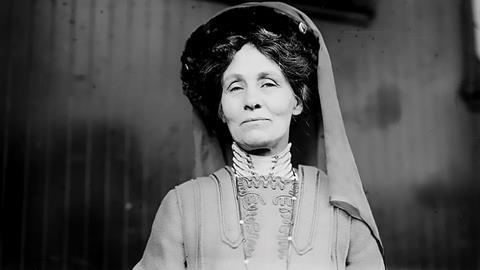A solicitor’s memoirs – part 3
The legal profession was, for Edward A. Bell, a personable world, and for a London solicitor it could centre on the meetings and ‘festivities’ of the Law Society.
‘It has been my privilege to attend some of the Law Society’s Annual Meetings and Provincial Congressional Gatherings,’ Bell wrote in his 1939 memoir, These Meddlesome Attorneys.
His attendance provided ample chance to observe the profession’s leaders, and he dedicates a chapter to ‘Presidents of the Law Society, As observed from the fringe of the crowd’.
‘Robert W. Dibdin, President in 1923, was a “Dresden China” type of man, being little, dainty, elegant and accomplished, with a mellifluously high pitched voice and the gift of graceful and pellucid speech… During his term, all the Society’s meetings and festivals were arcades of pleasant association.’
Such style meant that ‘Dibdin was a social ornament at the Law Society’s Annual Council Dinners, where he was always to be seen genteelly happy and pleasantly gay, hopping about from group to group welcoming and welcomed by all. He had an ingenious habit of arching his eyebrows when he promoted conversation; when he required desistence, he straightened them and passed on’.
This personable world of chance encounters could also result in political alliances being easily formed. Called upon to witness a will signing, Bell was pulled into the orbit of suffragette London, a ‘happy fortune’ by his account.
‘Mrs Pankhurst I met at the home of one of her supporters who left her whole fortune to a war baby mothered by Mrs Pankhurst. I was present when the Will was signed; and it was a pathetic incident to see the donor put round the baby girl’s neck a pearl necklace. We knew she was dying, and she passed within a month or so after. Mrs Pankhurst became guardian of the child, whom she reared in Canada.’
Emmeline Pankhurst made a strong impression on Bell, who recalled her as ‘a noble-looking woman’. ‘She had a beautiful voice, which animated an almost fanatical enthusiasm, controlled by a stateswoman’s mind. I remember her telling me when I gave some transparent opinion on the march of events “I was no politician”. If I had been older I think I should have ventured to ask her to define a politician; I think she would have told me “a woman of action organizing a definite purpose”.’
Her daughter Christabel, Bell wrote, ‘possessed a visionary disposition, but she was not so strongly fibred as her mother’. Sylvia Pankhurst, he thought, had ‘more of her mother’s disposition; she is a wonderful leader and a clear voluminous writer – a striking little personality who, with her vivid intensity, can influence a large audience even to political aggression’.
As a direct result of these encounters, Bell used what opportunities he had to promote the admittance of women to the legal profession. Probably around 1910, he took up the issue with the Law Society Council.
‘I remember… venturing to idealize the Society’s masculinity by suggesting that women should be admitted to the ranks of the profession... a preponderating majority of the Council and members present shuddered in avoidance and shelved tendentious subversion by resolving forthwith to pass to the next business.’
Bell appeared as a witness in Gwyneth Bebb’s case against the Law Society, the 1913-14 trials which sought to force the profession to admit women. Bell does not include the case in his memoirs, but he had been called to attest that if Bebb won her case he would offer her articles. In 1922, three years after the Sex Disqualification (Removal) Act became law, he was publicly pressing the Law Society president on when the first woman solicitor would be admitted.
Of the world of the solicitor, which he sought to open to women, Bell had reflected at length. In a chapter headed ‘Lawcraft’, Bell wrote: ‘A solicitor has a devious line of country through which to follow his avocation.’ Unlike a barrister, ‘he has not the opportunity of learned detachment; he is in closest touch with his client and has to collate the facts and inferences of the matters in issue upon which he is consulted’.
As a result, a good solicitor needed to be a ‘Professor of Humanity’, and ‘affably mingle with mankind in general on the principle that the wider the range of fellowship the greater will be the marketable area of his clientele’.
To be successful, a solicitor ‘must be an urbane philosopher with some knowledge of law or an accurate ability of knowing where to find law… must encounter rebuffs with equanimity, and above all, with good humour, and receive congratulations with sang-froid’.
Writing on the eve of the second world war, reflecting on a career that stretched back to Victorian England, Bell concluded that a good solicitor ‘should hug none, but is required to associate professionally with all’.
Edward A. Bell, These Meddlesome Attorneys, was published by Martin Secker, London in 1939.





































No comments yet